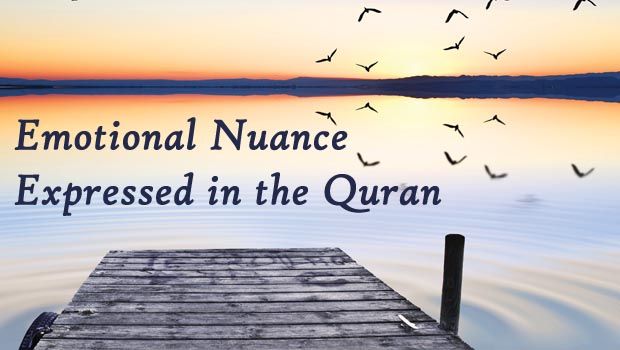Part one of this article covered two of the four women mentioned by Prophet Muhammad (s) in the following hadith: Ibn Abbas reported that the Messenger of Allah, peace and blessings be upon him, said, “The best of women among the people of paradise are Khadija bint Khuwaylid, Fatimah bint Muhammad, Maryam bint Imran, and Asiyah bint Muzahim, the wife of Pharaoh.”
Khadijah bint Khuwaylid and Faimah bint Muhammad were the two exemplars of faith detailed in part one. Now we look at the other two: Maryam bint Imran and Asiyah bint Muzahim, may Allah be pleased with them all.
Maryam bint Imran (r)
Maryam’s father died before her birth and she was under the care of Prophet Zakariya (a.s.), her uncle. The mosque was her safe haven as she lived there and engaged in constant acts of worship such as dhikr, prayer, and active remembrance of Allah SWT. This was an answered prayer to Maryam’s mother, Hannah, who vowed that she would raise a child who would focus on worship and remembrance of Allah. When Prophet Zakariya used to visit Maryam in her prayer room at the mosque, he would find winter fruits in the summer and summer fruits in the winter, as mentioned in Tafseer Ibn Katheer. He would be amazed by how there was always food available to Maryam no matter the season. This access to surpluses of food, and even fruits out of season, were from Allah SWT. We are told in the Qur’an, “So her Lord accepted her with good acceptance and caused her to grow in a good manner and put her in the care of Zakariya. Every time Zakariya entered upon her in the prayer chamber, he found with her provision. He said, ‘O Mary, from where is this [coming] to you?’ She said, ‘It is from Allah. Indeed, Allah provides for whom He wills without account’” (Qur’an 3:37).
The divine miracle that Allah SWT bestowed upon Maryam was her conceiving and giving birth to Jesus (a.s.), Isa in Arabic. The Qur’an recounts this miraculous birth: “She [Maryam] said, ‘How can I have a son when no man has ever touched me, nor am I unchaste?’ He [the angel] said, ‘So will it be! Your Lord says: It is easy for Me. And so will We make him a sign for humanity and a mercy from Us.’ It is a matter decreed” (Qur’an 19:20-21). Shortly before she gave birth to Isa, Maryam sat underneath a palm tree in extreme fatigue and in constant pain and suffering.
After she gave birth, it is revealed in the Qur’an that her newborn baby [according to some, it was Jibril, the angel] said, “Do not grieve; your Lord has provided beneath you a stream. And shake toward you the trunk of the palm tree; it will drop upon you ripe, fresh dates. So, eat and drink and be content. And if you see from among humanity anyone, say: ‘Indeed, I have vowed to The Most Merciful abstention, so I will not speak today to a human being'” (Qur’an 19:24-26).
When the darkness of difficulties encompasses us, it is difficult to imagine any light that may be present or will shine forth. While we may often question the hardships in our lives and feel as though our du’a seeking Allah’s guidance is not being responded to, we must always keep in mind that for every hardship, obligation, and restraint Allah SWT has placed upon us, there lies a greater wisdom. Maryam (r) demonstrated her dedication to Allah SWT and her surrender to His Lordship through her years of seclusion in the masjid, in constant dhikr and prayer. When hardships came her way, such as conceiving a child when she was not married, enduring the pain of childbirth with no one around to help or comfort her, and having then to face those who threw accusations at her, she held firmly to the rope of Allah SWT, asking Him for guidance through those difficult times.
She had a clear understanding that Allah SWT is in control of everything that comes onto our path, and she accepted her circumstances with patience and resolve. Maryam also voiced her gratitude to Allah SWT whenever she received a blessing. For example, when Zakariya would ask her about the seasonal fruits available to her all year long, she credited Allah SWT for this blessing. This active remembrance Maryam had of Allah SWT during both times of ease and hardship shows how conscious she was of His presence. This conscious awareness and remembrance strengthened her eman and allowed her to stand firmly on the straight path, fully in surrender to Allah.
We often seek Allah’s guidance and communicate with Him the most when we are experiencing trials and hardship. Yet, when we are granted bounties and blessings, we can learn from Maryam that those too are times for du’a to express our gratitude. Seeking closeness to Allah encompasses all human experience — to show gratitude to Him for every single blessing in our life during our moments of happiness, to ask for forgiveness during our moments of regret, and to seek guidance and comfort during our moments of sorrow. These are lessons we can learn from the life and character of Maryam, one of the four best women of Paradise.
Asiyah bint Muzahim (r)
Asiyah was a queen, the wife of Firawn, the pharaoh during the time of Musa (a.s.). After hearing from a fortune teller that he would be overthrown by a man from the Bani Israel, Firawn ordered all the Israelite baby boys to be killed. Musa’s mother heard of this horrendous order, so she put Musa in a basket and let it float down the Nile River. “And We inspired the mother of Musa: ‘Suckle him, but when you fear for him, then cast him into the river and fear not, nor grieve. Verily! We shall bring him back to you and shall make him one of the messengers” (Qur’an 28:7).
Prophet Musa was safely found downstream by Asiyah who would become a supporter of his prophethood and a believer in the faith he propounded. When Firawn discovered Asiyah’s belief in Allah SWT and Prophet Musa’s message of faith, he grew furious, as he was an idol worshipper and strongly denied the truth about Allah SWT. Asiyah was tortured by Firawn as a result of her faith.
Abu Uthman an-Nahdi reported that Sulayman said: “Firawn’s wife was tortured in the heat of the sun. When her torturers would take a break and walk away, the angels would shade her with their wings, and she would see her home in Paradise.” We are told in the Qur’an, “And Allah sets forth an example for the believers, the wife of Pharaoh, who prayed, ‘My Lord! Build me a house in paradise near You, deliver me from Pharaoh and his deeds, and save me from the people, the wrongdoers’” (Qur’an 66:11). Despite the severe pain from the torture Asiyah was subjected to, she kept her grasp firmly on the rope of Allah. Her faith was more important than all else. It is said that after making the du’a as presented in the above verse that Allah SWT responded to Asiyah by opening the skies and allowing her to see her home in paradise. Seeing this, Asiyah was joyous. This marked the final moment of Asiyah’s life as a huge boulder was placed on her body, killing her, as ordered by Firawn.
Asiyah (r) portrays the epitome of standing one’s ground and having an unshakeable faith. She stood up against a corrupt and brutal monarch, her own husband, who attempted to destroy her faith and shatter her soul. When the world challenges who we are and what we believe in, we must unapologetically shine forth in our identity and stay firm in our beliefs.
From the stories of these four remarkable women come symbols of courage, intelligence, heart, and leadership. We must reflect on these symbols and the virtuous traits they represent and find our own courage, intelligence, heart, and leadership. Then we are properly carrying on the legacy of these four best women of Paradise.





